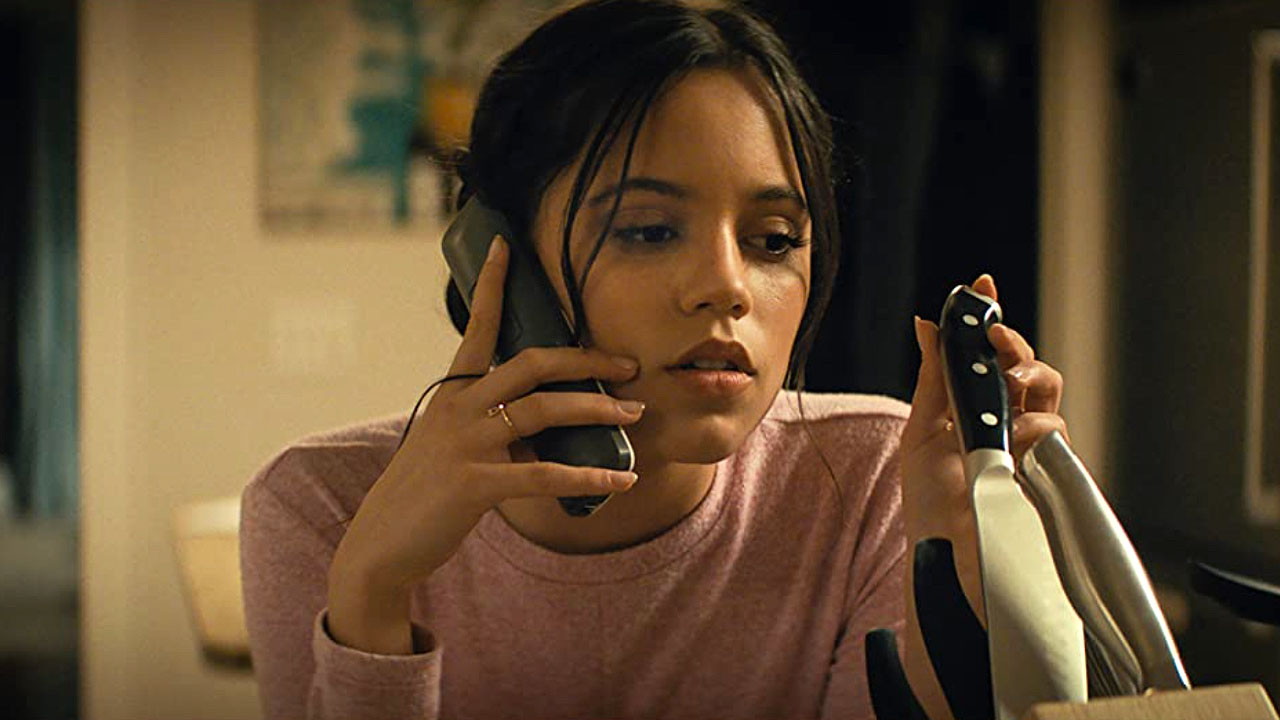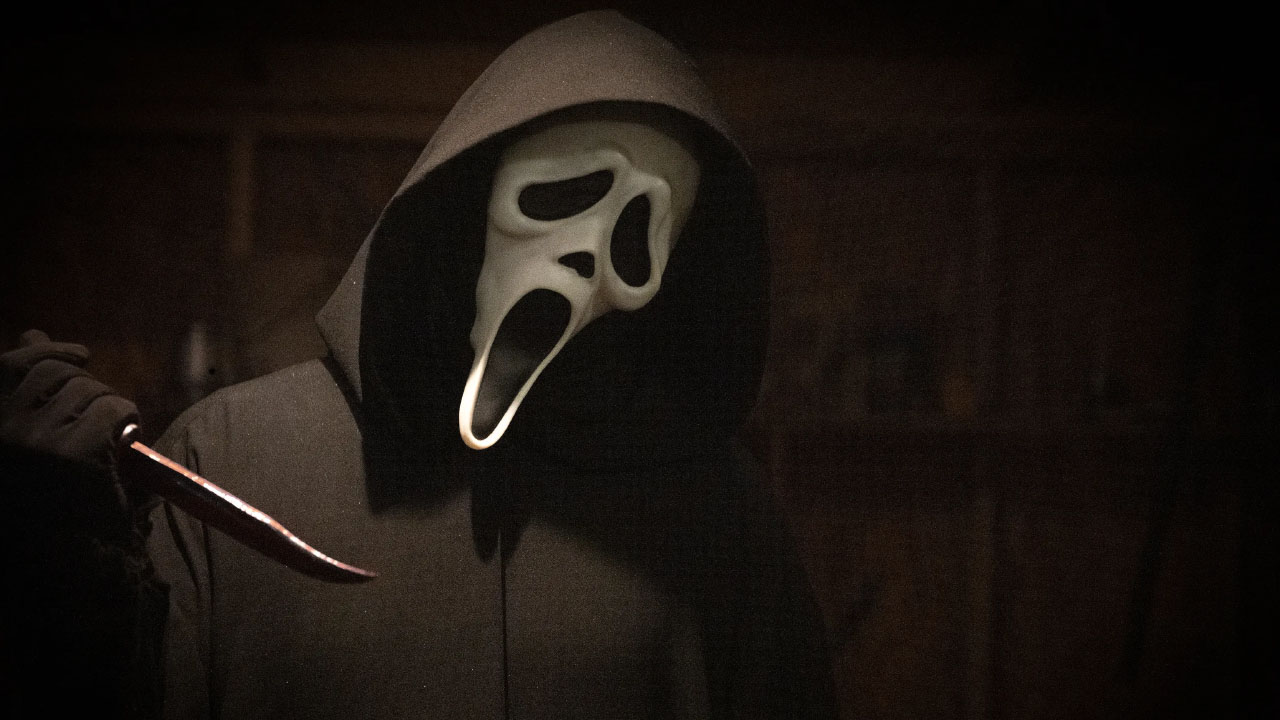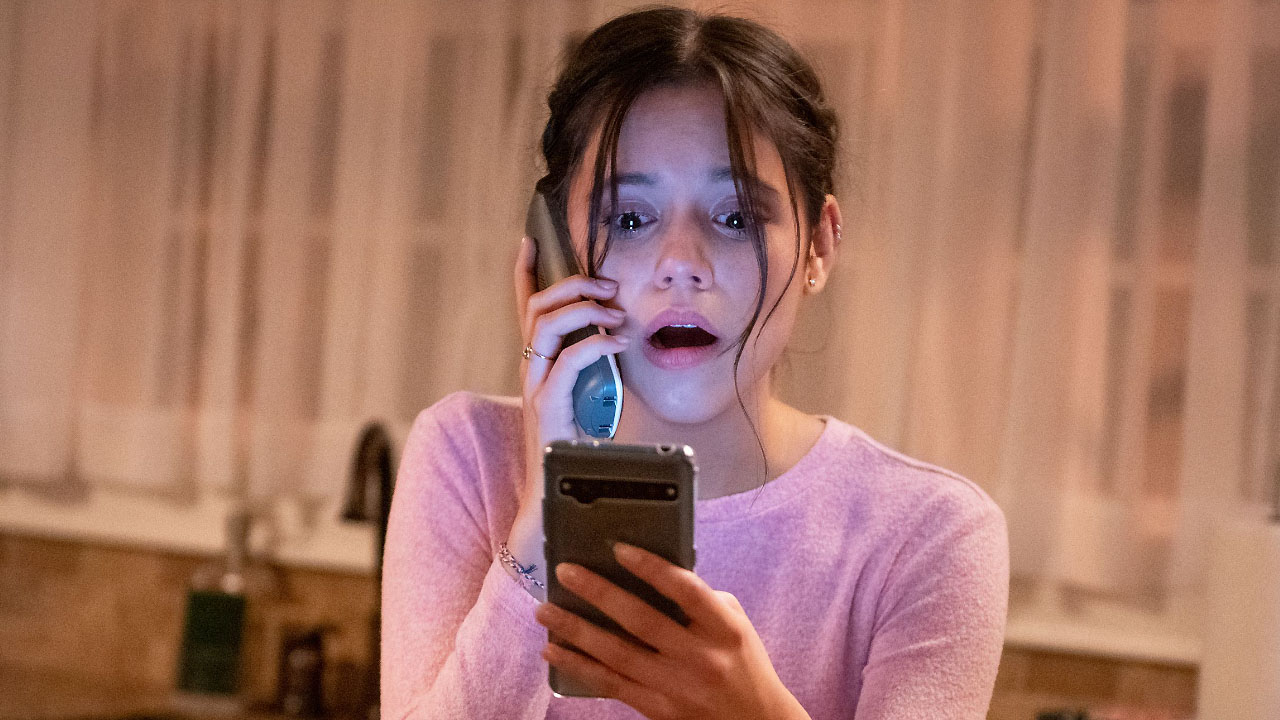Scream skewers new genre gags alongside genuinely disturbing knifeplay

The satirical slasher series returns, with the economically titled Scream. Wes Craven would likely be proud of how this Scream moves from horror commentary comedy to carnage, writes Steve Newall, with some of the most graphic deaths of the franchise to date.
Scream (2022)
It may not be as outrageously bananas in its approach, but this fifth film in the Scream franchise has something in common with Matrix: Resurrections in its biting commentary on our contemporary film culture. And, since the last creaky entry Scream pic was released in 2011, there have been plenty more genre developments to riff on—here they include snooty superiority about arthouse horror, toxic fandom, and The Last Jedi (commenting on the divided response to a new film in the movie-within-a-movie Stab franchise).
As befits a 2022 instalment in the series that defined modern meta-horror with its self-awareness about The Rules of slasher pics, this new entry is acutely aware of its positioning as a “requel”—described at some length within the film itself as a special subcategory of blended reboot and sequel. You know the kind of film all too well—a fresh cast is introduced as Hollywood recycles familiar intellectual property, with the presence of legacy characters adding cred to the whole enterprise. Crucially when it comes to how a Scream pic functions, and as a character explains at one point, this means The Rules are somewhat different…
Even the film’s own title comes in for in-film critique, with the Stab films lambasted for having taken a similar path of eventually reusing the original title. Having only semi-effectively tackled the remake craze in Scream 4, it’s satisfying to see the meta elements of requel culture tackled generally better here—although by no means do all the gags and references land (I could definitely have done with some of the many verbal references to other horrors sliced back a bit).

While the Stab films—standing in for the Scream films themselves—provide the narrative skeleton, there’s a mix of fresh and aged meat on the 2022 Scream’s bones. A new crop of teens (including Jenna Ortega, Mikey Madison and Jasmin Savoy Brown) find themselves being hunted by a new Ghostface; an older sister and her boyfriend (Melissa Barrera and Jack Quaid) join the fray; and a familiar trio returns from prior films (Neve Campbell, Courteney Cox, David Arquette).
Savoy Brown in particular is great as the modern incarnation of Jamie Kennedy’s character Randy Meeks from the 1996 original, whose horror knowledge informed the film’s knowing tone. And Ortega’s presence sets the tone early, a young woman home alone who’s toyed with over the phone in a revisiting of Drew Barrymore’s classic opening scene (even if Barrymore never cited The Babadook).

The presence of a character called Wes, in a nod to Wes Craven, might have been a sign the film was taking its references too far if not for the adept hand shown throughout by directors Matt Bettinelli-Olpin and Tyler Gillett aka Radio Silence. As their prior film Ready Or Not attests, they know their horror shit and can balance comedy with the carnage. Their set-piece staging here is first-grade, and they make full use of jump-scares, fake-outs before the jump-scares (and fake-outs before the fake-outs).
Craven would likely be proud of how this Scream moves from horror commentary comedy to genuinely disturbing knifeplay—some of the deaths on-screen here rank among the most graphic of all the films, and even the jeopardy faced by some of the more two-dimensional characters connects.
By the time it hits the home straight—announced onscreen by a bloody killer as the beginning of the third act—Scream’s done a great job of channeling the spirit of the original and surpassing most of its sequels. Sure, much of what we see has a whiff of familiarity, but this slasher pic is well-executed and respectful of the rules to which it is itself bound.
Expect plenty of conversation about the rationale behind the film’s killing spree. I won’t go into it here, except to say I admired the intent even if an explanatory monologue grew to feel a little forced—but the risk-taking is welcome, elevating this above a mere retread. With its work as a requel done, Scream leaves the door wide open for more, begging the question where its own sequels may go, and whether they can sustain the series better than their predecessors.




















